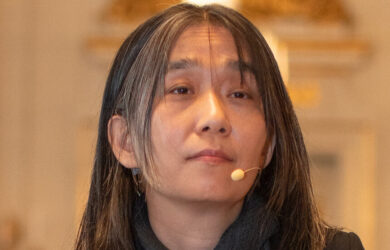
Michael Young co-authors paper on whether to tell patients about rationing decisions.
Should patients and their families should be routinely informed if they are denied intensive care treatment due to healthcare rationing? An article published in this month’s Clinical Care Medicine journal and co-written by Gates scholar Michael Young examines this question.
The paper, Rationing in the intensive care unit: to disclose or disguise?, is a response to growing pressures on hospitals to ration intensive care unit beds and services. The authors say that the question of how to allocate resources has been much debated, but whether to tell patients and their relatives has not been explored.
It argues that if patients and their families are routinely informed about the reasons for rationing this would help to set realistic expectations about their treatment.
The paper concludes that there are compelling reasons to support a policy of routine disclosure. It says: “Systematic disclosure of prevailing intensive care unit norms for making allocation decisions, and of at least the most consequential specific decisions, can promote transparent, professional, and effective healthcare delivery.”
It calls for more research on the best way of informing patients about rationing decisions without causing negative impacts on patients and on medical staff.
Writing in the same edition of the journal, Marion Danis of the National Institutes of Health in the US says: “The paper makes an important contribution to the literature, since rarely in the literature on the ethics of rationing is the issue of approaches to disclosure addressed. I agree with the view [of the authors] because we should not ignore the evidence that rationing does indeed occur and because healthcare providers owe it to patients and families to help them understand this.
Michael [2011] is studying for an MPhil in Philosophy and is focusing on philosophical issues in medicine and bioethics.
The work for this article was done under the direction of Dr Scott Halpern, MD, of the University of Pennsylvania Perelman School of Medicine.
Picture credit: Sura Nualpradid and www.freedigitalphotos.net












